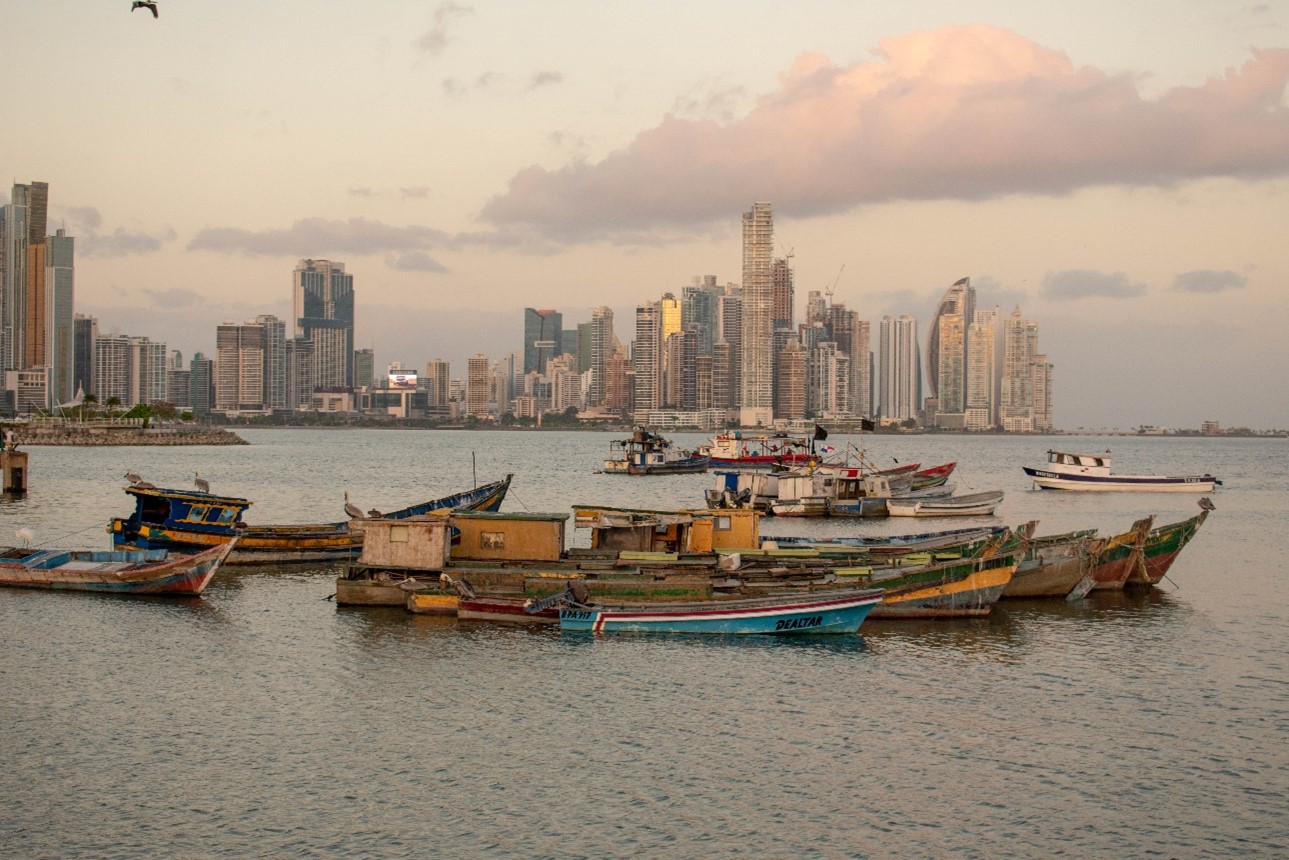Panamá Adelante: Addressing International Anti-Corruption Standards Through the Exchange of Experiences and Spaces for Dialogue

Panama, a four-million-person strong isthmus, is known for its geostrategic significance in the Western Hemisphere, maritime commerce routes, and migratory flows. At the same time, the country has faced many challenges related to the fight against corruption in public administration.
The Panamanian government has been largely focused on transparency and accountability in public contracting, open government, and open data. These are primarily being promoted by the executive branch, civil servants, and citizens. These themes were central to an accountability campaign for presidential candidates during the 2019 election launched by the Foundation for the Development of Citizen Freedom, the Panamanian Chapter of Transparency International.[1] In the follow-up report to the Lima Commitment of the 8th Summit of the Americas by the Citizen Corruption Observatory of Panama, an initiative the Foundation, the Latin American and Caribbean Network for Democracy (REDLAD), and Citizens Forum of the Americas (FCA), Panama received an average score of 1.43 in a zero (minimum) to three (maximum) scale. The score is below the regional average in access to information, transparency, civil society participation, among others.[2]
To make improvements, the government has been actively implementing the Fourth Open Government Action Plan with the support of the Open Government Partnership (OGP). IRI will be supporting the Plan’s open contracting commitment with the Dirección General de Contrataciones Públicas (General Directorate for Public Contracting, DGCP), la Autoridad Nacional de Transparencia y Acceso a la Información (National Authority for Transparency and Access to Information, ANTAI), CoST International, and OGP.
Within the framework of IRI’s project on strengthening international anti-corruption standards in Panama and Peru, it has worked with the Judicial Branch and the DGCP in the creation of South-South tools, or knowledge networks and deliverables between the Global South, as well as capacity-building exchanges. Through working tables with the Judicial Branch and civil society, both parties agreed to the creation of an open data portal that has since been used by the Anticorruption Citizen Observatory, which is composed of different national civil society organizations (CSOs).[3] The exchange gave the Observatory and others the opportunity to analyze, communicate, and interpret information to identify potential vulnerabilities.
The program included the development of an online course titled “Open Data and the Culture of Open Justice: The Role of a Judicial Servant,” with the support of the Higher Institute of the Judiciary of Panama, including the experiences of Argentina and Costa Rica.[4] After this, participants designed an action plan on how to create a political culture of open justice. Other activities included a course titled “Transparency and Integrity in Open Contracting: Ethical Culture in Public Service,” which featured experts from Ecuador and Chile, a regional exchange between Panama and Colombia on best practices and experiences with Open Contracting Observatories, and a Guide for Ethical Relationship Building in the Contracting Process.
As a result of the exchanges, IRI observed an increase in knowledge gained and the ability of civil society to develop targeted, sustainable deliverables and be involved in international advocacy efforts. Additionally, project activities were particularly useful in identifying allies within the Judicial Branch interested in open government processes. The exchanges between countries proved to be highly relevant to the work of CSOs that observed how similar monitoring and compliance processes are developed in other contexts. They were then able to apply this to similar scenarios, especially in the creation of observatories focused on procurement and public management in Panama.
Though there were many challenges to the implementation phase of this project, IRI saw greater collaboration between government and civil society stakeholders and a strengthening of its relationship with key institutions, including the Directorate of Judicial Auditing, the Technical Secretariat of Modernization, and the Superior Institute of the Judiciary. Additional successes were the exchange between the DGCP and the Public Procurement Observatory of Colombia where the former committed to incorporating lessons learned to their government plan and policies, particularly the Public Procurement Observatory (Panamá en Cifras). IRI will continue to support these efforts through its new project supporting the Open Contracting Commitment in the Fourth Open Government Action Plan.
As Panama and the broader region continue to face governance feats regarding transparency and accountability, IRI is committed to fostering in-depth, meaningful spaces for knowledge sharing, dialogue, and action plans, with the aim of constructing resilient democracies that align with international anti-corruption standards.

[2] https://www.libertadciudadana.org/wp-content/uploads/2021/10/Informe_OCC_Panama%CC%81_ESP.pdf; https://www.prensa.com/politica/panama-incumple-con-los-compromisos-adquiridos-en-la-cumbre-de-lima-en-temas-anticorrupcion/
[4] This was part of a regional exchange between the Office of Cooperation and International Relations of the Judicial Power in Costa Rica, the National Commission for Improvement of Justice Administration of Costa Rica, and the Ministry of Justice and Human Rights of Argentina.